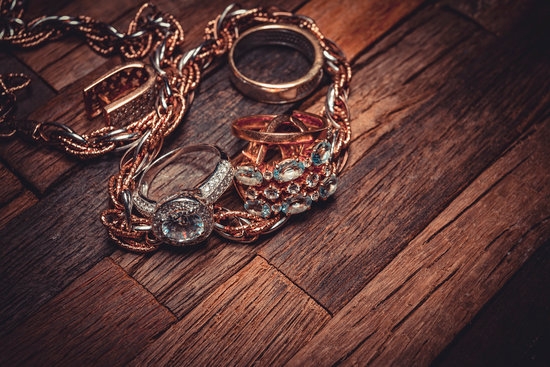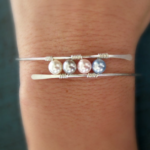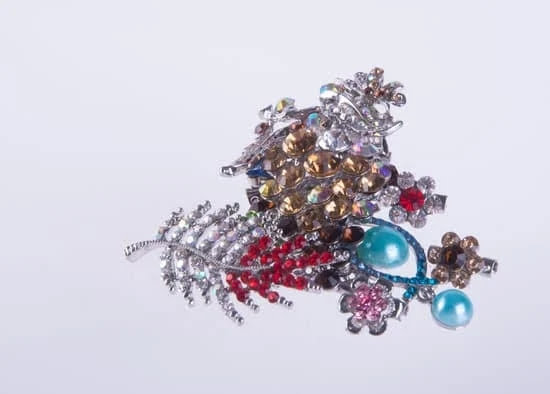Are you interested in learning how to sell fine jewelry on commission? Whether you are an experienced salesperson looking to enter the luxury goods market or a jewelry enthusiast eager to turn your passion into a profitable business, this article will provide you with valuable insights and tips for success.
From understanding the commission structure in the fine jewelry industry to building a strong network of potential buyers, we will guide you through the process of becoming a successful fine jewelry seller.
To start your journey as a fine jewelry seller, it is essential to understand the commission structure in the industry. This includes knowing how commissions are typically calculated and what factors may affect your earnings. Additionally, having a good grasp of the pricing strategies used in the fine jewelry market will be crucial for maximizing your commission earnings.
Once you have familiarized yourself with the basics, we will provide you with tips for effectively selling fine jewelry on commission. From leveraging social media and online platforms to building strong product knowledge and providing excellent customer service, these tips will help you navigate the competitive world of luxury goods sales.
We will also address common challenges and objections that you may encounter when selling fine jewelry on commission, as well as discuss the benefits and drawbacks of this sales model compared to others. Join us as we delve into the exciting world of selling fine jewelry on commission.
Understanding the Commission Structure in the Fine Jewelry Industry
Selling fine jewelry on commission can be a lucrative and rewarding career path for those with a passion for luxury goods and a knack for sales. Before delving into this field, it is important to understand the commission structure in the fine jewelry industry.
Most fine jewelry sellers work on a commission basis, meaning they earn a percentage of the sales they make. This commission can range anywhere from 5% to 50%, depending on the company and the value of the jewelry being sold.
In addition to the base commission rate, many fine jewelry companies offer performance-based incentives such as bonuses or higher commission rates for surpassing sales targets. It is crucial for aspiring fine jewelry sellers to thoroughly research and understand these different structures before entering into any agreements. Knowing how to negotiate and maximize commission earnings can make a significant difference in one’s income potential.
Furthermore, it is essential to familiarize oneself with industry-specific terminology and guidelines surrounding commissions, as well as any legal or ethical considerations that may apply. By developing a clear understanding of the commission structure within the fine jewelry industry, individuals can establish realistic expectations and set achievable goals for their sales efforts. In sum, educating oneself about how to sell fine jewelry on commission is paramount for success in this competitive and dynamic market.
Tips for Effectively Selling Fine Jewelry on Commission
Selling fine jewelry on commission can be a lucrative opportunity for those with the right skills and knowledge. Here are some tips for effectively selling fine jewelry on commission:
1. Develop a deep understanding of the product: Before you can effectively sell fine jewelry, it’s vital to have a strong understanding of the products you are selling. Learn about different types of gemstones, precious metals, and jewelry styles to better educate potential buyers.
2. Build relationships with potential buyers: Networking and building relationships with potential buyers is essential in the fine jewelry industry. Attend industry events, join professional associations, and participate in local community events to connect with potential clients who may be interested in purchasing fine jewelry.
3. Offer exceptional customer service: Providing outstanding customer service is crucial when selling any high-end product like fine jewelry. Be attentive to customers’ needs, be knowledgeable about your products, and always be willing to go above and beyond to ensure your clients are satisfied.
When selling fine jewelry on commission, it’s important to remember that developing strong product knowledge and building relationships with potential buyers are key components of success in this industry. By following these tips and leveraging these strategies, you can maximize your earning potential while providing valuable products to discerning customers.
Building a Strong Network of Potential Buyers for Fine Jewelry
Building a strong network of potential buyers is essential for successfully selling fine jewelry on commission. Here are some tips for expanding your network and reaching potential buyers:
- Attend industry events and trade shows: Networking at events specific to the jewelry industry can be an effective way to connect with potential buyers, such as retailers, wholesalers, and individuals looking for fine jewelry. Be sure to bring business cards and make a positive impression.
- Collaborate with other professionals: Building partnerships with other professionals in related industries, such as fashion, wedding planning, or luxury goods, can help you expand your reach. Consider teaming up with stylists, wedding planners, or high-end retailers to promote and sell your fine jewelry.
- Utilize social media and online platforms: Social media is a powerful tool for connecting with potential buyers worldwide. Create engaging content that showcases your fine jewelry and use targeted advertising to reach potential customers. Online marketplaces and e-commerce platforms also provide opportunities to connect with buyers from different regions.
In addition to these strategies, it’s important to cultivate relationships within your local community and beyond. Remember that building a strong network takes time and effort, but the connections you make can lead to lucrative sales opportunities in the future.
Leveraging Social Media and Online Platforms to Sell Fine Jewelry on Commission
When it comes to selling fine jewelry on commission, the use of social media and online platforms can significantly amplify your reach and increase potential sales. One of the first steps in leveraging these platforms is to create an engaging online presence. This could include setting up professional profiles on platforms such as Instagram, Facebook, Pinterest, and Twitter, showcasing not only the jewelry pieces you’re offering but also highlighting your expertise and passion for fine jewelry.
Additionally, utilizing online marketplaces such as Etsy or EBay can provide a wider audience for your fine jewelry offerings. Online marketplaces often have built-in tools for promoting products and reaching interested customers. When using these platforms, be sure to optimize your product listings with high-quality images and clear, compelling descriptions that highlight what makes each piece unique.
It’s also essential to engage with potential buyers by responding to inquiries promptly. By utilizing direct messaging functions on social media or e-commerce sites, you can provide personalized attention and build relationships with potential buyers. Furthermore, consider offering promotions or exclusive deals for followers to drive engagement and incentivize purchases.
Lastly, harness the power of video content-whether through live streaming events showcasing your inventory or educational videos that explain the craftsmanship and quality of your fine jewelry pieces. Video content is increasingly popular across social media platforms and can help you connect with potential buyers on a deeper level while showcasing the beauty of your offerings.
| Platform | Key Benefit |
|---|---|
| Visual-focused platform ideal for showcasing fine jewelry | |
| Etsy | Offers access to a large community of individuals passionate about handcrafted items |
| Provides opportunities for targeted advertising based on user demographics |
How to Price Fine Jewelry to Maximize Commission Earnings
Pricing fine jewelry to maximize commission earnings is crucial for anyone selling jewelry on commission. Understanding the market, the quality of the jewelry, and the preferences of potential buyers are all essential factors to consider when determining the price of each piece. One effective strategy is to research similar pieces in the market to gauge an appropriate price range that reflects both the value of the jewelry and its appeal to potential customers.
Another important aspect of pricing jewelry for commission earnings is to be aware of any current trends or demand for certain styles or types of jewelry. By staying informed about what is popular in the market, sellers can adjust their pricing strategy accordingly to meet the demand and make more sales. For example, if there is a surge in popularity for a specific gemstone or design, sellers can capitalize on this trend by adjusting their prices slightly higher.
Furthermore, it’s essential for fine jewelry sellers to understand the value and unique selling points of each piece they are selling. This allows them to justify the price to potential buyers and effectively communicate why a particular piece is worth its asking price. By being knowledgeable about the materials, craftsmanship, and design details, sellers can build trust with buyers and increase their chances of making successful sales.
| Aspect | Importance |
|---|---|
| Researching market prices | Highly important |
| Adapting to market trends | Crucial |
| Understanding product value | Extremely important |
The Importance of Product Knowledge and Customer Service in Selling Fine Jewelry on Commission
Selling fine jewelry on commission requires a deep understanding of the products being sold and the ability to provide exceptional customer service. Potential buyers of fine jewelry are often well-informed and discerning, making it crucial for sellers to possess in-depth product knowledge.
This includes understanding the different types of gemstones, precious metals, and jewelry designs, as well as being aware of current trends and market values. In addition, having knowledge about the craftsmanship and quality of the jewelry can instill confidence in potential buyers and help close sales.
Providing Exceptional Customer Service
In the world of selling fine jewelry on commission, customer service is paramount. Building rapport with clients, being attentive to their needs, and offering personalized recommendations are all part of providing exceptional customer service. Whether working with individual clients or representing a specific fine jewelry brand, creating a positive and memorable experience for customers is essential for building long-term relationships and repeat business.
Continuous Learning and Training
To excel in selling fine jewelry on commission, it’s important to constantly seek opportunities for training and learning. Staying updated on industry trends, new collections, and developments in gemology can set a seller apart from others in the field.
Attending trade shows, workshops, and seminars can provide valuable insights into the ever-evolving world of fine jewelry sales. Additionally, seeking out mentorship from experienced professionals in the industry can offer guidance and expertise that leads to success in selling fine jewelry on commission.
As one navigates the world of selling fine jewelry on commission, it becomes evident that product knowledge combined with exceptional customer service is at the heart of this specialized sales niche.
Overcoming Common Challenges and Objections When Selling Fine Jewelry on Commission
Dealing With Price Objections
One of the most common challenges faced by fine jewelry sellers on commission is overcoming price objections from potential buyers. Customers often hesitate to make a purchase due to the high price tag associated with fine jewelry. To overcome this challenge, it’s important for sellers to emphasize the value and quality of the jewelry, highlighting its unique features and craftsmanship. Offering flexible payment plans or financing options can also help address concerns about affordability.
Addressing Trust and Credibility Concerns
Another common objection when selling fine jewelry is related to trust and credibility. Potential buyers may be hesitant to make a purchase from a seller they are not familiar with, especially when it comes to high-value items like fine jewelry.
Building trust and credibility through transparent communication, providing references, and showcasing positive customer reviews can help alleviate these concerns. Additionally, offering certificates of authenticity for the jewelry can further reassure potential buyers of the quality and legitimacy of the pieces.
Handling Customer Preferences and Customization Requests
Customers often have specific preferences when it comes to fine jewelry, which can result in customization requests that may pose challenges for sellers. It’s important for sellers to be knowledgeable about customizations options and have access to skilled artisans who can fulfill these requests efficiently. By listening attentively to customer preferences and offering personalized solutions, sellers can turn these challenges into opportunities to provide exceptional customer service and earn repeat business.
By effectively addressing these common challenges and objections, fine jewelry sellers can enhance their ability to close sales on commission while building a strong reputation in the industry. Understanding how sell fine jewelry commission doesn’t just involve pricing strategies or building up your network but also being prepared for obstacles along the way.
The Benefits and Drawbacks of Selling Fine Jewelry on Commission vs Other Sales Models
In conclusion, selling fine jewelry on commission offers numerous benefits and some drawbacks compared to other sales models. One key advantage is the potential for high earning potential, as sellers have the opportunity to directly benefit from their sales efforts through a commission-based structure. This incentivizes sellers to be proactive and strategic in their selling approach, ultimately maximizing their earnings.
Additionally, selling fine jewelry on commission allows sellers to have more flexibility and independence in managing their time and sales tactics. This can be appealing for individuals who prefer autonomy in their work and enjoy the challenge of meeting sales targets through their own efforts.
However, there are also drawbacks to consider when selling fine jewelry on commission. Sellers may experience fluctuations in income due to market trends or seasonal demand for specific types of jewelry. Furthermore, there can be added pressure to consistently meet or exceed sales goals in order to maintain a steady income stream.
Overall, while there are challenges associated with selling fine jewelry on commission, individuals who possess the drive, charm, and determination to succeed in this competitive industry can find great success. By following the tips outlined in this article, aspiring fine jewelry sellers can navigate these challenges effectively while capitalizing on the benefits of a commission-based sales model.
With a strong network of potential buyers, adept use of social media and online platforms for marketing, along with a thorough understanding of product knowledge and customer service skills, individuals can thrive in how they sell fine jewelry commission.
Frequently Asked Questions
What Is a Good Commission Rate for Jewelry Sales?
A good commission rate for jewelry sales can vary depending on the type of jewelry being sold and the specific business. Generally, for fine jewelry, a commission rate between 10-15% is considered standard. However, for higher-end or custom pieces, the commission rate may be higher to reflect the higher prices and level of service involved.
What Is the Average Markup on Fine Jewelry?
The average markup on fine jewelry can also vary, but typically falls within the range of 3-5 times the cost of the materials and labor involved in creating the piece. This markup helps cover operating costs, overhead, and still allows for a reasonable profit margin for the jewelry retailer.
What Is the Commission Rate for Zales?
The commission rate for Zales employees, like any other retail store, can depend on various factors such as individual sales performance, experience level, and position within the company. It’s common for retail companies to have a tiered commission structure where higher sales volume or more expensive items sold result in a higher commission rate.
Overall, retail employees at Zales would likely earn a commission based on their personal sales performance within these parameters.

Welcome to my jewelry blog! My name is Sarah and I am the owner of this blog.
I love making jewelry and sharing my creations with others.
So whether you’re someone who loves wearing jewelry yourself or simply enjoys learning about it, be sure to check out my blog for insightful posts on everything related to this exciting topic!





